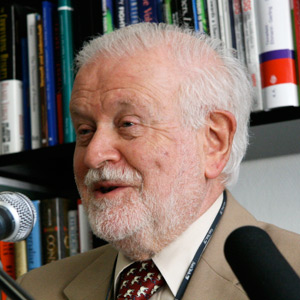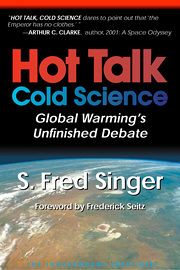In his State of the Union address, President Barack Obama again confirmed that “saving the climate” remains one of his top priorities. Yet an official December 2014 confab in Lima, Peru, didn’t really conclude anything—certainly no binding Protocol to limit emissions of carbon dioxide (CO2)—but it “kicked the can down the road” to the next international gabfest in Paris, scheduled for 2015.
The world is looking forward to the 21st annual COP (conference of the parties to the global climate treaty), which will be held in Paris this December. It is hoped by many that Paris will end up with a climate protocol that will continue and even surpass the Kyoto Protocol of 1997, which expired in 2012 and achieved practically nothing except to waste hundreds of billions that might have been better spent addressing genuine world problems—without accomplishing its main goal of reducing global emissions of the much-maligned greenhouse gas CO2. On the contrary, emissions rose—mainly from greatly increased industrial growth in China, which was fueled primarily by coal-fired power plants. At the same time, of course, global agriculture benefited from these higher levels of CO2, which is a natural plant fertilizer; the starving of the world really owe a vote of thanks to China.
Three “big guns” billionaires—Tom Steyer, Hank Paulson, Mike Bloomberg—have already pledged their support for Paris; various scientific groups have already issued alarming Statements, without even the pretense of agreement from their memberships; even the Vatican’s Pope Francis plans to get into the act.
The Paris pattern
It is not at all difficult to predict what will happen in Paris; in fact, it is a “no-brainer.” There will be an agreement of sorts, but it will be essentially meaningless. Yet it will be hailed as a “breakthrough” by the White House and thus form an important part of the “Obama Legacy.”
The basic pattern for Paris has been set already by the U.S.-China agreement of November 12, 2014. China agreed to do nothing until at least 2030—just to continue to emit ever-increasing amounts of carbon dioxide, with a peak at around 2030 (they say). By that time, it can be safely predicted that energy demand in China will have been saturated. Population may have stabilized and every household will have accumulated all of the gadgets they need to make life pleasant: Television, refrigerators, air conditioning, and the other baubles common in the wealthy countries. Has China finally decided to “fight climate change”? My personal opinion is that China is taking advantage of White House science ignorance and anxiety about future climate change, hoping thereby to gain commercial and strategic advantages against the United States.
Other nations
Following the China example, India may decide to adopt the China pattern and let their emissions peak around 2050, let’s say; other countries will choose their dates accordingly. In other words, everybody will be doing their own thing, but there will be some kind of “agreement” that they will all be happy to sign—or be bribed into signing.
Significantly, Japan, Canada, and Australia will no longer follow this pattern and will likely refuse to have anything to do with the Paris accord.
At the same time, the United States and European Union will undertake to seriously reduce CO2 emissions by another 26 percent to 28 percent in the next 10 years—for the U.S., a 40 percent reduction by 2030; for the EU, at great cost to their economies and to the standard of living of their populations.
President Obama already signed an Executive Order on March 19 directing the federal government to cut its greenhouse-gas emissions by 40 percent from 2008 levels over the next decade, and to increase the share of renewable energy in the government’s electricity supply to 30 percent over the same period. The New York Times reports the federal government’s greenhouse gas emissions are less than one percent of total U.S. emissions, although the federal government is the single biggest user of energy in the nation.
Obama’s war on coal is indeed making electricity prices “skyrocket”—just as he promised in 2008, when he ran for president. Voters were beguiled by the vision of “slowing the rise of the oceans” and of “saving the climate.” Little did they realize that they were being fed nonsensical science and that high energy prices would instead lead to the growth of poverty. Had they had the good sense to look at the European experience, they might have rejected Obama’s siren song. Blame, if you will, the mainstream media, TV, Hollywood, Greenpeace, Sierra Club, and the rest of the green lobby. George W. Bush could have saved the situation, but he didn’t.
Meanwhile, many of the States are banding together to fight EPA’s “Clean Power Plan” in the courts. In addition, Congress is reminding the White House that any U.S. commitment in Paris can be cancelled by a future president.
The question is whether such an agreement is binding on the United States. The White House will attempt to argue that this is an international agreement and not a Treaty that has to be sent to the Senate for ratification. However, Congress will argue otherwise and will announce that any Paris agreement is an executive one, not binding on the United States, and thus revocable by future presidents.
The U.S. Senate will recall that in 1997 it voted unanimously for the Byrd-Hagel Resolution against any unilateral U.S. restriction on emissions—if it results in economic damage. Senator Byrd (D-WV) wanted to protect coal mining; Hagel (R-NE) wanted to protect the US from unfair economic competition. It is interesting that our Secretary of State, John Kerry, voted for Byrd-Hagel at that time, as did some other senators, like firebrand Barbara Boxer. Chuck Hagel is no longer a U.S. Senator, but we hope he will step up and remind people of his 1997 Resolution.
No significant warming for past 18 years
Meanwhile, the climate continues to plateau; no significant warming has occurred in nearly 20 years—in spite of a greater than 10 percent increase in CO2.
Scientists, both alarmists and skeptics, are still trying to explain this “pause”—as it is sometimes called. The word "pause" denotes an expectation that the climate will again warm—although no one has any acceptable hypothesis as to when the warming might resume, if ever.
But since climate has historically moved in cycles, and since we expect a recovery from the Little Ice Age of 1400-1850, we expect to see some natural warming in the next hundred to two hundred years. On the other hand, since the present interglacial (“Holocene”) period has now lasted 12,000 years, longer than the average interglacial within the past million years or so, many predict the onset of another full glaciation.
It would be extremely ironic if another such a glaciation were to start shortly after a Paris agreement that is trying to prevent a global warming.









